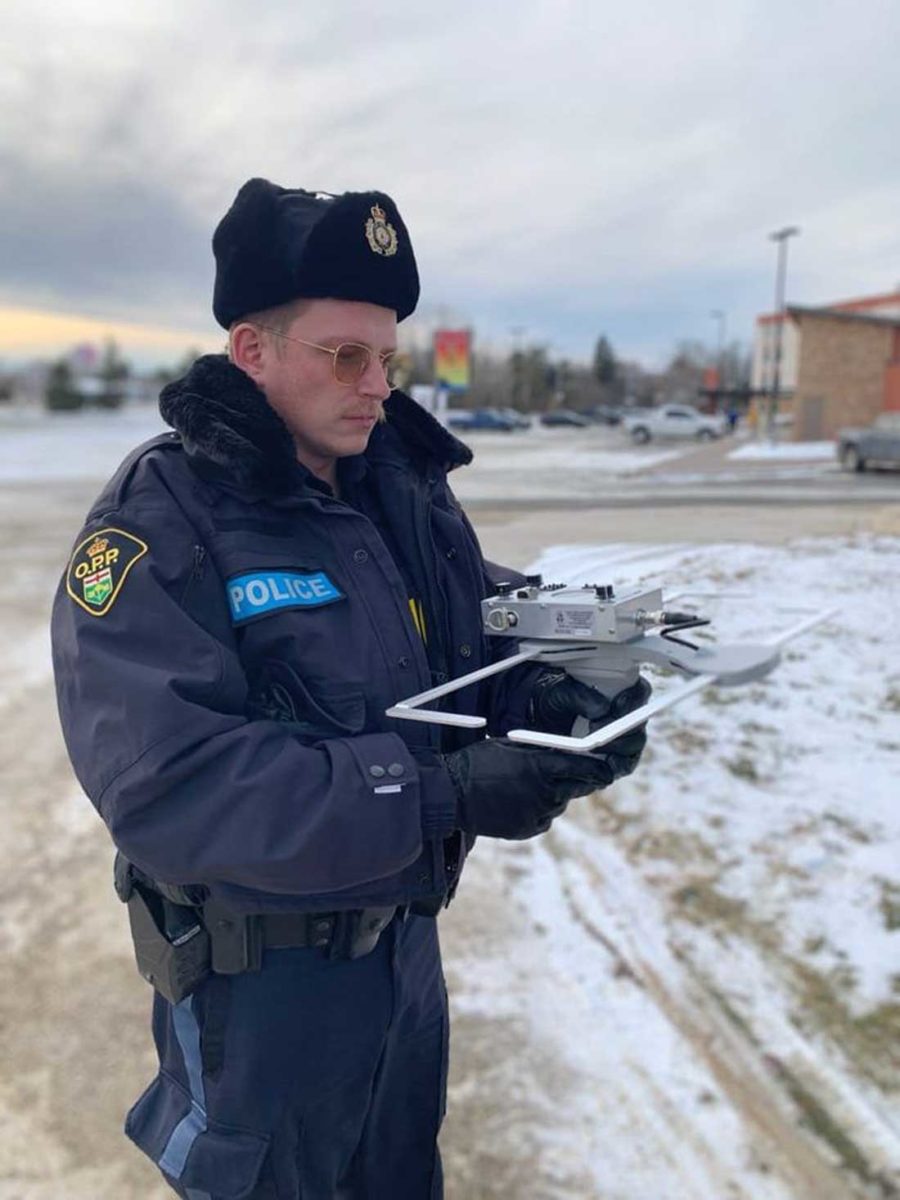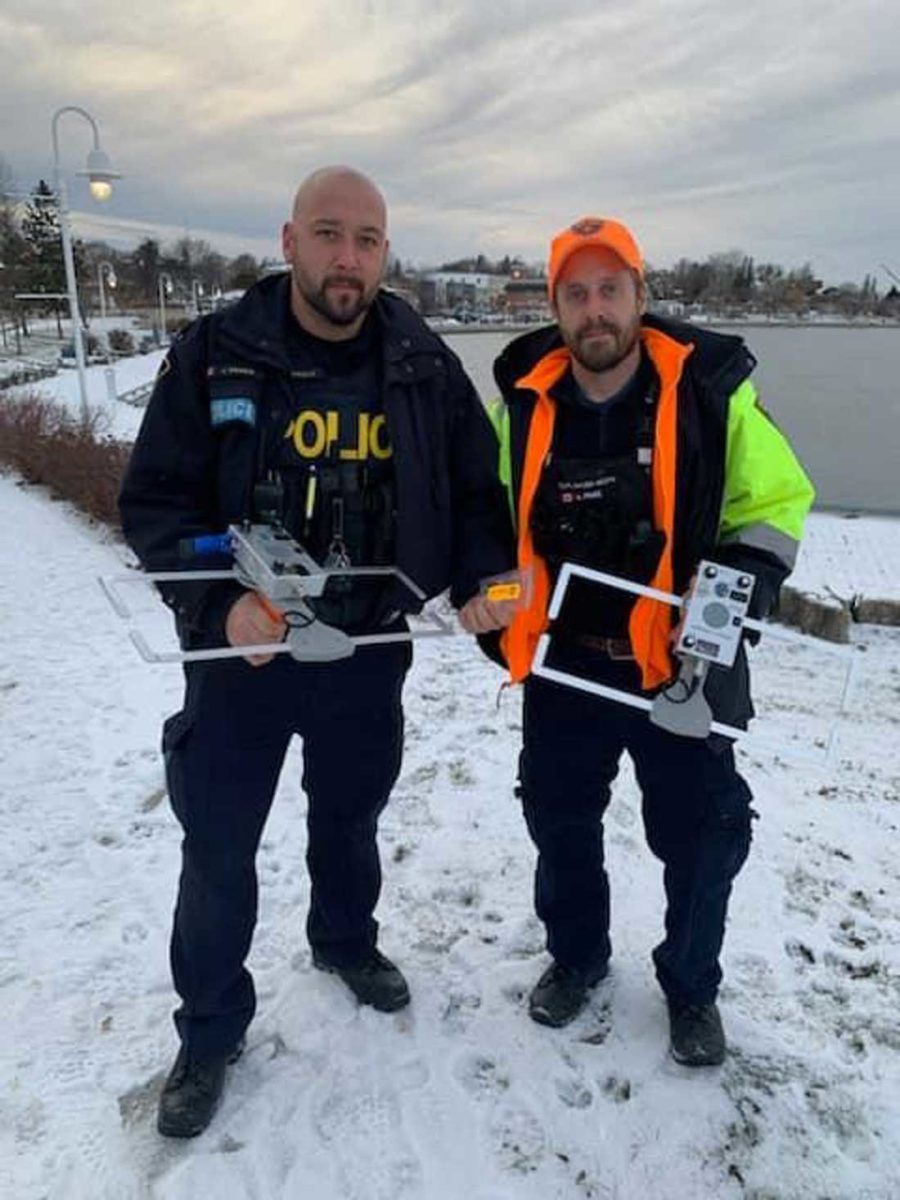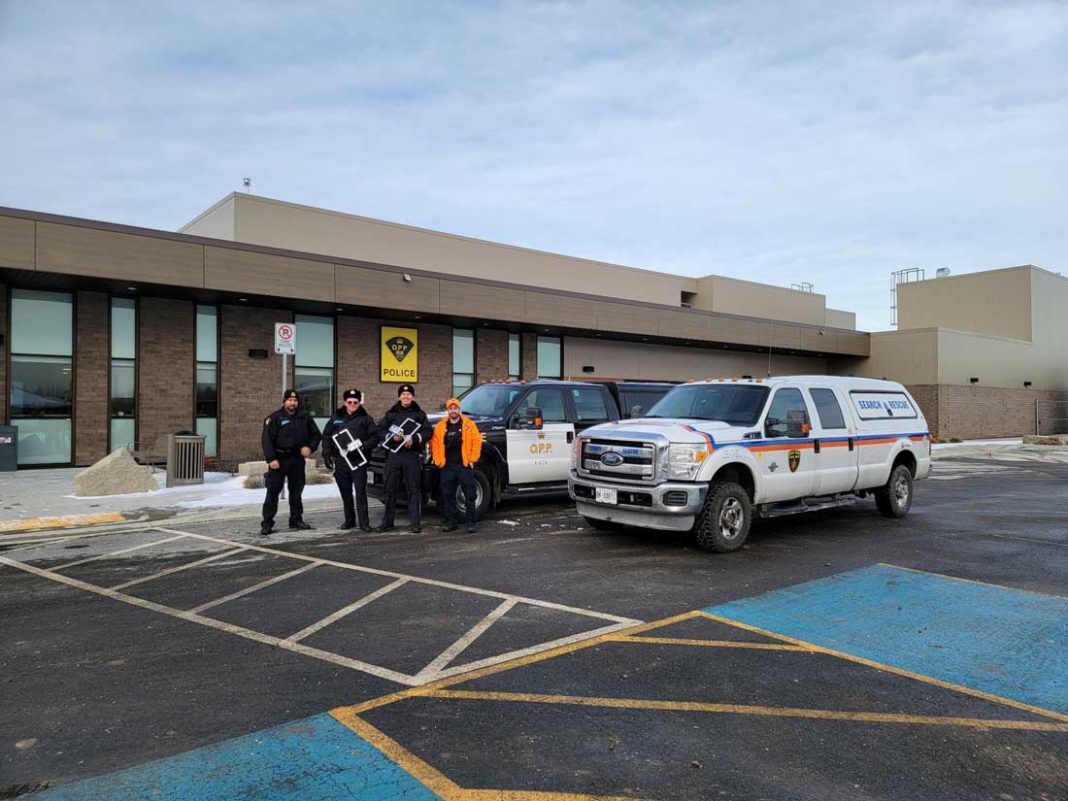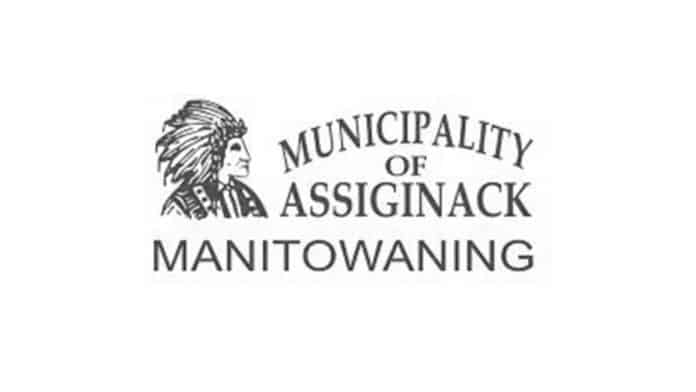MANITOULIN—Project Lifesaver has launched on Manitoulin Island. The Manitoulin Ontario Provincial Police (OPP) detachment announced the partnership with Manitoulin Northshore Victims Services (MNSVS) with a launch last week. Project Lifesaver’s body-worn radio transmitters will help the OPP Northeast Region quickly locate people with cognitive disorders who are prone to wandering.
“The program has now been launched,” said Constable John Hill, community safety officer with the Manitoulin OPP. “Hopefully it will never have to be used, but if people would like an extra level of security to keep their loved ones safe, this would be the program.”
Domtar donated the funding to purchase the equipment needed, including radio transmitters and the bracelets that clients wear, to bring the program to the North Shore and Manitoulin.
The Little Current Lions Club and many Island municipalities also donated funds to the cause.
MNSVS will be administering the program. “We are thrilled to be taking on the administrative role for Project Lifesaver in our communities, and furthering our relationship with the OPP,” said Jessica Summers, victim support specialist with MNSVS. Among those who provided donations to the program included the Little Current Lions Club, the municipalities of Assiginack, Billings, Northeastern Manitoulin and the Islands and Central Manitoulin, along with Domtar.
“I am so happy we can offer this program to at-risk individuals who are prone to wandering and help their caregivers feel more at ease,” she added. “I would also like to send a huge thank you to the donors who have helped make the program possible.”
Project Lifesaver is a radio frequency-based tracking system, explained Constable Hill. The technology has been around for many years and is accurate, simple and dependable. The system is for people of all ages who are high risk, vulnerable persons. They must tend to wander and have been diagnosed with Alzheimer’s or other dementia, autism, Down Syndrome, or other forms of cognitive delay.
“Now that we have this available, anyone with a family member (with cognitive conditions) can call MNSVS,” he said. “It’s pretty amazing technology.”
Clients wear a personalized wristband that emits a unique tracking signal. When caregivers notify police that the person is missing, regular police resources and Project Lifesaver-trained OPP officers will respond to the area where the lost person was last seen and search the area. “We are able to respond to the scene using a mobile location tracking system, with a unique FM radio frequency that works 24/7 outside, even in thick tree cover and inside buildings as well,” Constable Hill said. “It is similar to what scientists use for tracking animals.”
The signal can be tracked on the ground for approximately 2.5 kilometres, or in the air from a helicopter for approximately eight to 10 kilometres. As each wristband has a unique radio frequency, the Project Lifesaver team can positively locate and identify the person who has wandered off, using the portable directional antennae to locate the signal.
The battery in the bracelet must be changed approximately every 60 days. Caregivers are provided with a battery tester and are required to manually test the battery daily.
The receivers work with two interchangeable antennas. The ‘Omni’ antenna has a magnetic base that allows it to be secured to the roof of responding OPP vehicles. It has less range than the ‘Yagi’ antenna but does allow for the signal to be received from any direction, making it an ideal option for mobile sweeps of search areas. Once a signal is picked up with the Omni antenna, searchers then switch to the Yagi antenna, which is considered the primary antenna. “The Yagi allows us to make use of the maximum range of the bracelets and have the advantage of being directional,” Constable Hill said. “Police responders can determine the direction and approximate distance of the transmitter from their own positions.”
While GPS is the most accurate navigation system in the world, the signals are very weak and can be difficult to locate in blocked environments, such as inside buildings or structures. The clients that are registered with Project Lifesaver do not exhibit traditional lost person characteristics and often do not realize they are, in fact, lost. Often, they will wander into areas where GPS signal penetration is very poor, such as underground parking, dense bush or inside structures. This is why the radio frequency-based Project Lifesaver system is beneficial for these applications.
The task of searching for wandering or lost individuals with Alzheimer’s, autism, Down Syndrome, dementia or other cognitive impairments is a growing and serious responsibility. Without effective procedures and equipment, searches can involve multiple agencies, hundreds of officers, countless man hours and thousands of dollars.
More importantly, because time is of the essence, every minute lost increases the risk of a tragic outcome. Most who wander are found a few kilometres from home. Search times when using Project Lifesaver have been reduced from days and hours to just a few minutes. Recovery times for Project Lifesaver clients average 30 minutes, which is 95 percent less time than standard operations.
The Manitoulin OPP will still be in charge of the search and will call all applicable resources, such as the Emergency Response Team, Canine Unit and OPP helicopter. “Tessa Kasch has been leading the charge on this programming locally but has now moved into the crime division,” said Constable Hill.
Constable Hill and two members of the Manitoulin OPP Emergency Response Team underwent training for the program over two days last week. “Now we are able to secure equipment and training a couple of emergency responders in Espanola and two on Manitoulin Island,” Constable Hill said. “There are now five of us who are trained in using the equipment and we are now able to start training others.”
“Project Lifesaver is just another tool in the toolbox to save lives,” he said. “It has a proven track record here in Ontario and Domtar’s donation has helped to ensure that Manitoulin Island and the North Shore have the best system possible.”
See projectlifesaver.org for more information on Project Lifesaver. For more information on enrolling a loved one, contact Manitoulin Northshore Victim Services at 705-370-3378 or by email, victimservices@vianet.ca.







